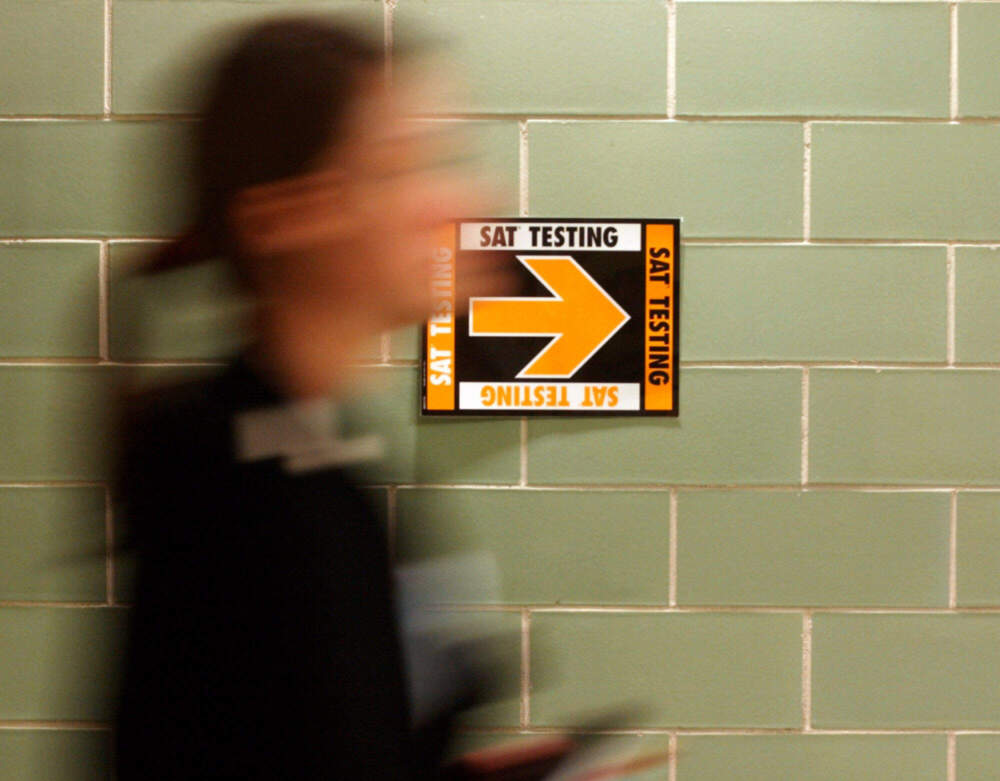Advertisement
Commentary
Higher ed got it wrong — the SAT still matters

A recently released Dartmouth report calls for reinstating mandatory, standardized test scores as an admissions criterion. Knee-jerk critics of the SAT and ACT, habituated to condemning those supposed oppressors of the marginalized, may not read it.
They should.
The Ivy League school joins an advance guard of elite peers, including MIT, that’s ending their pandemic pause on requiring standardized test scores. The SAT and ACT, which long split schools into pro and anti benches, became optional on many campuses during COVID, justifiably, to avoid mass, close-quarters testing and viral superspreading. Now, only the virus of unbending ideology impedes the return of testing on more campuses.
Some will cite critics like Ibram X. Kendi — some already have, before Dartmouth’s decision —who damned standardized tests as “the most effective racist weapon ever devised to objectively degrade Black and Brown minds and legally exclude their bodies from prestigious schools.” (His quote pertained to standardized tests for Boston’s three, test-requiring junior high and high schools.) Disclosure: I’m a Dartmouth alumnus. Second disclosure: I work, as does Kendi, at Boston University; I speak only for myself, not my employer, which remains test-optional.
Kendi is a brilliant scholar. (And as an aspiring picture book writer, I consider him one of the most magical wordsmiths in the biz.) But if his sentiments, which referred to high school testing, apply to higher ed as well, he’s mistaken.
Nearly half of high school seniors nationwide graduated with A averages in 2016. Then COVID turbocharged the phenomenon, according to a study by American College Testing (ACT), the organization that created and administers the ACT. And while that group has monetary skin in this game, federal research corroborates the finding. For admissions officers seeking hints of college readiness, inflated high school GPAs provide deflated value. As the headline on a teacher’s New York Times op-ed noted, “If Everyone Gets an A, No One Gets an A.”
For admissions officers seeking hints of college readiness, inflated high school GPAs provide deflated value.
Were runaway grades “a true reflection of student achievement, it would be reason to celebrate, but the metrics have it differently,” that teacher wrote. “From 1998 to 2016, average high school GPAs rose from 3.27 to 3.38, but average SAT scores fell from 1026 to 1002. ACT scores among the class of 2023 were the worst in over three decades. Is it any wonder, then, that 65 percent of Americans feel they are smarter than average?”
Meanwhile, the Dartmouth researchers — three economists and a sociologist commissioned by the college’s president — found that when testing becomes optional, “many high-achieving, less-advantaged applicants choose not to submit scores, even when doing so would allow Admissions to identify them as students likely to succeed at Dartmouth and in turn benefit their application.”
Why would those applicants benefit by submitting potentially embarrassing scores? Because admissions officers aren’t stupid. “Dartmouth Admissions uses SAT scores within context,” the report says. A 1400 score generally rates as underwhelming in Hanover, New Hampshire. But “a score of 1400 for an applicant from a high school in a lower-income community with lower school-wide test scores is a more significant achievement than a score of 1400 for an applicant from a high school in a higher-income community with higher school-wide test scores.”

And in assessing applicants, admissions officers at Dartmouth compare applicants’ test scores against all test-takers at their high school.
If high school grades flunk as predictors of success, Dartmouth cites research showing that “SAT and ACT scores are highly predictive of academic performance [and] career success, including high levels of earnings and attendance at elite graduate schools, holding family income constant.”
Bottom line: Eliminate standardized testing, and colleges are stuck with less reliable crystal balls to forecast who will sink or swim.
Rarely does my alma mater get a shoutout from the likes of the conservative New York Post. But one of the tabloid’s columnists applauded the Big Green with a balanced summation: “Of course, we should constantly be looking to modernize our institutions, and the SAT and ACT should certainly not be immune to scrutiny.” (Indeed, as a legacy admission from the 1970s, I know that getting into college for my teenage son was multiples of difficulty harder than for me, current bellyaching about higher ed’s worth notwithstanding.) “But overthrowing a major component of the admissions process in the absence of evidence — often at the behest of activists — is no solution.”
Of late, putative progressives have seen several cherished education shibboleths wither under scrutiny. (Who could have predicted the return of phonics?)
But education values evidence. The anti-testers need to go back to school on that one.
